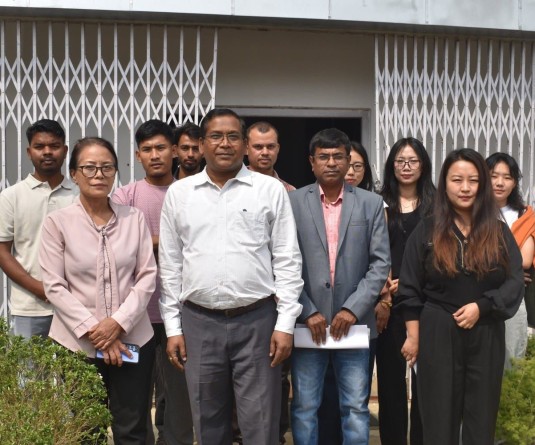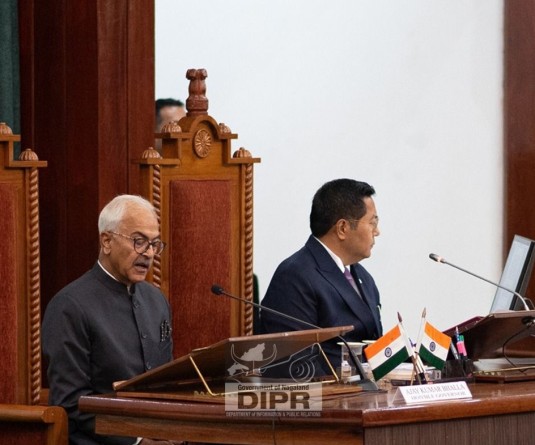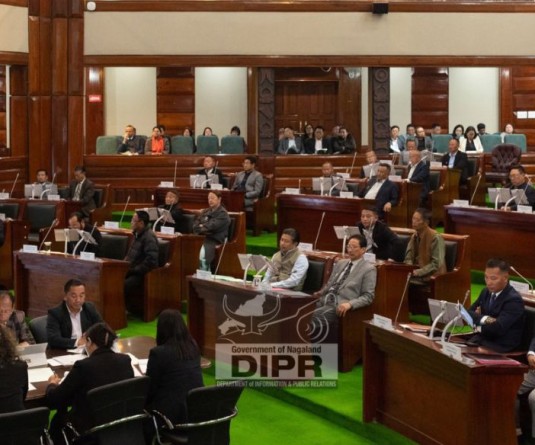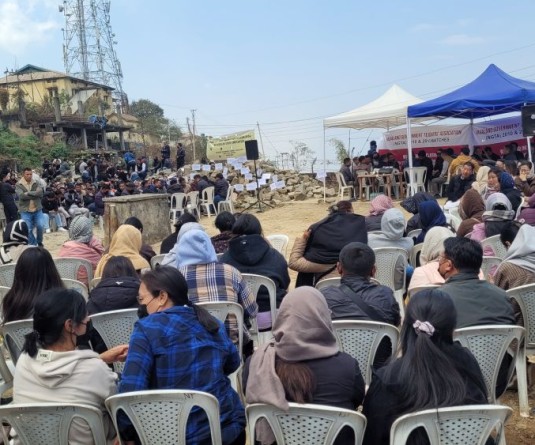
Advisor Yanthan assures action after NCCAF flags 'uncritical promotion' by Department of Agriculture
Kohima, December 18 (MExN): The Nagaland Advisor for Agriculture, Mhathung Yanthan, along with the Department of Agriculture (DoA), has “fully endorsed” the need for broad-based stakeholder consultations to ensure transparent public engagement and critical deliberations.
This endorsement came after the Nagaland Community Conserved Areas Forum (NCCAF) expressed deep concern on December 16 over what it termed the “uncritical promotion” of oil palm cultivation by the DoA in the state.
In response, the Advisor stated that the consultation process would assess the long-term environmental impacts of oil palm cultivation, as well as other plantation and field crops, including biodiversity conservation and water security. It will also evaluate the social and economic implications for local communities, including livelihoods and traditional practices.
The consultations will explore viable and sustainable alternatives to ensure that agricultural policies are farmer-friendly while preserving Nagaland’s natural resources, he added.
Yanthan further assured all stakeholders that the Government of Nagaland is committed to making balanced and well-informed decisions that serve the best interests of the people, the environment, and future generations.
He encouraged experts, organisations, farmers, and all concerned parties to collaborate with the DoA in formulating a comprehensive roadmap for sustainable agriculture in Nagaland.
The Department will soon initiate a platform to facilitate this much-needed dialogue and welcomes the active participation of civil society organisations, farmers, researchers, and conservationists to ensure that agricultural policies promote economic opportunities while upholding ecological responsibility, he added.
The Advisor also emphasised that the State Government remains steadfast in its resolve to pursue sustainable development that preserves Nagaland’s rich natural heritage while empowering farmers and uplifting rural communities.
Meanwhile, the DoA acknowledged the concerns raised by NCCAF and other individuals and organisations regarding oil palm cultivation in the state. As the MLA and Advisor for Agriculture, Yanthan expressed appreciation for their commitment to safeguarding Nagaland’s ecological and social integrity.
He further noted that the Government of Nagaland, through the DoA, has been promoting oil palm cultivation under the National Mission on Edible Oils – Oil Palm (NMEO-OP), recognising its potential for economic upliftment of farmers, improving rural livelihoods, and boosting the state’s agricultural economy.
However, he fully agreed that such initiatives must be pursued with sensitivity to the unique socio-environmental landscape of the state and adhere to the principles of sustainability, inclusiveness, and ecological balance.
The Department introduced oil palm cultivation in 2015-16 after a careful study of its economic, social, and environmental impacts, with a target of covering approximately 15,000 hectares in the jhum fallow areas of the state, he said.
The Advisor also noted that the DoA is in constant consultation with several globally renowned sustainable oil palm groups. While the “myths and facts” surrounding oil palm cultivation are based on scientific findings from the ICAR-Indian Institute of Oil Palm Research, concerns persist regarding its complex environmental, social, and cultural implications.
These concerns can neither be ignored nor oversimplified and require a holistic, participatory, and evidence-based approach that considers the perspectives of farmers, environmental experts, civil society organisations, and local communities, he added.






